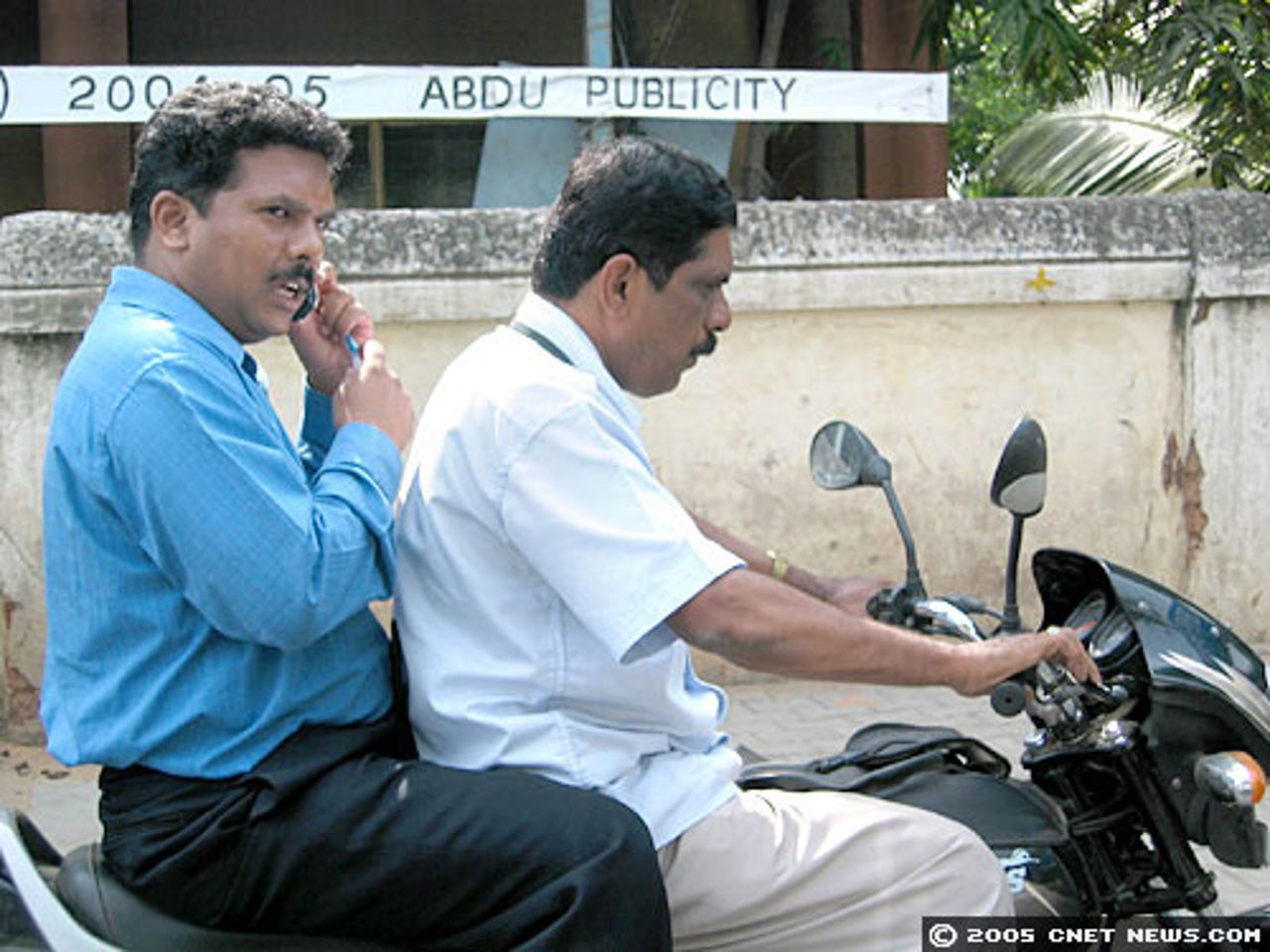Photos: India's changing landscape


Tech gets to work in India
For these two men in Bangalore, the start to the workday requires a scooter and a cell phone. India's cell phone market has been growing at a better than 50 percent clip in recent years, and at the end of 2004, the country had more than
Bangalore traffic
India's tech growth has put a strain on infrastructure. In Bangalore, more cars on the road translates to daily gridlock. The five-mile drive to Electronics City, the main tech hub, can take an hour from the center of town.
Electronics City
Located on the outskirts of Bangalore, Electronics City is an industrial park for high-tech companies that is home to both homegrown leaders like Infosys and incomers like Dell.
Open for business
Bangalore isn't the only city getting high-tech attention. In March, Michael Dell journeyed to Mohali to inaugurate a new call center that will employ 1,500 people.
Learning lab
The computer lab at the Indian Institute of Technology Bombay. Some 250,000 new students enter computer science and electrical engineering programs in India each year, according to Prof. Deepak Phatak, head of the Kanwal Rekhi School of Information Technology at IIT.
Beyond academia
The tech knowledge base is growing outside of academic institutions. Here, students at a women's knowledge center in a small village outside of Mumbai, formerly known as Bombay, get a chance to pick up computer skills, for instance.
Hands-on help
Prof. Jitendra Shah makes a point at a computing class in a women's knowledge center near Mumbai.
Infosys on the rise
One of the "Big Three" Indian outsourcing companies, Infosys Technologies has seen revenue grow in the 30 to 50 percent range every year for the last five years.
Living the good life at Infosys
The clipped green grounds at Infosys Technologies in Bangalore include a swimming pool, table tennis, pool tables, cafeterias and a mirrored building shaped like one of the pyramids.
Parking lot
Fast-paced technology development has driven changes in other parts of Indian life. Here, the ranks of motorcycles in the parking lot at Tata in Bangalore hint at the city's congestion.